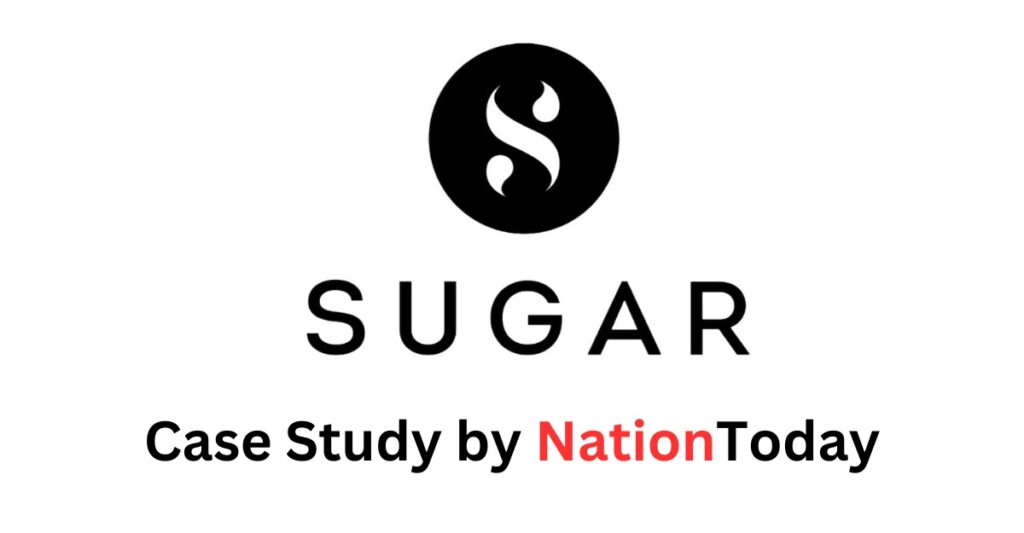Sugar Cosmetics, founded in 2012 by Vineeta Singh and Kaushik Mukherjee, has emerged as one of India’s fastest-growing premium cosmetic companies, catering specifically to the needs of millennials. This business case study explores the company’s history, founders, business model, growth trajectory, challenges faced, funding, partnerships, and future plans.
Vineeta Singh, an IIT Madras and IIM Ahmedabad alumna, along with her husband Kaushik Mukherjee, ventured into the beauty industry after identifying a gap in the market. The duo initially started Fab Bag, a beauty subscription service, which laid the groundwork for SUGAR Cosmetics. The pivotal moment came when customer feedback revealed a lack of makeup brands catering to Indian skin tones and lifestyles. This insight led to the inception of SUGAR Cosmetics in 2015, with a focus on inclusivity, quick product development, and social media engagement.
Business Model and Revenue Streams:
Sugar Cosmetics operates on a direct-to-consumer (D2C) business model with an omnichannel approach. The company utilizes brick-and-mortar stores, its official website, and e-commerce partnerships like Amazon and Nykaa. The revenue streams include both domestic and international sales, with a significant presence in over 40,000 retail outlets across 550 cities. The brand’s emphasis on inclusivity and versatility in product offerings has contributed to its customer-centric approach.
Financial Performance:
The financial overview of Sugar Cosmetics provides insights into the company’s performance and financial health during the fiscal years FY22 and FY23.
- Operating Revenue: In FY22, Sugar Cosmetics reported an operating revenue of Rs 222 crore, indicating the total income generated from its core business activities. The revenue saw a significant growth in FY23, reaching Rs 420 crore, showcasing a substantial increase in sales.
- Total Expenses: The total expenses for the company include various costs such as operating expenses, marketing expenses, and administrative costs. In FY22, the total expenses amounted to Rs 300 crore, and in FY23, they increased to Rs 505 crore. The rise in expenses suggests increased investments and operational costs.
- Profit/Loss: Sugar Cosmetics reported a loss of Rs 76 crore in both FY22 and FY23. While the company experienced a loss, it’s essential to consider the context, including the expansion efforts, marketing initiatives, and industry dynamics.
- EBITDA Margin: The EBITDA (Earnings Before Interest, Taxes, Depreciation, and Amortization) margin is a key indicator of operational profitability. In FY22, the EBITDA margin was -30%, and it improved to -14% in FY23. The improvement signifies the company’s efforts to manage operational efficiency.
- Expense/Rs of Operating Revenue: This metric indicates the efficiency of cost management. In FY22, the company spent Rs 1.35 for every rupee of operating revenue, and this improved to Rs 1.20 in FY23, suggesting better cost control measures.
- Return on Capital Employed (ROCE): ROCE is a measure of the efficiency of capital utilization. In FY22, Sugar Cosmetics had a ROCE of -78%, which improved to -29% in FY23. The negative values indicate a need for improvement in capital efficiency.
| Financials | FY22 | FY23 |
| Operating Revenue | Rs 222 crore | Rs 420 crore |
| Total Expenses | Rs 300 crore | Rs 505 crore |
| Profit/Loss | Loss of Rs 76 crore | Loss of Rs 76 crore |
| EBITDA Margin | -30% | -14% |
| Expense/Rs of Op Revenue | Rs 1.35 | Rs 1.20 |
| ROCE | -78% | -29% |
Fundraising and Growth:
Sugar Cosmetics has successfully raised funds in multiple rounds, reflecting investor confidence in its potential. The company raised $2.5 million in a Series A round in 2016-17, $10 million in a Series B round in 2018-19, and $21 million in a Series C round in 2019-20. The funds have been instrumental in expanding the product portfolio, increasing retail presence, and achieving a robust annual run rate of Rs. 500 crore as of November 2021. Notable investors include A91 Partners, Elevation Capital, and IndiaQuotient.
| Date | Round | Amount | Lead Investors |
| Sep 3, 2022 | Angel | – | Ranveer Singh |
| May 30, 2022 | Series D | $50 million | L Catterton |
| Oct 21, 2020 | Debt Fin. | $2 million | Stride Ventures |
| Oct 21, 2020 | Series C | $21 million | A91 Partners, Elevation Capital, India Quotient, Stride Ventures |
| Mar 8, 2019 | Series B | $12 million | Partners, Anicut Capital, India Quotient |
| Jun 1, 2017 | Series A | $2.5 million | India Quotient, RB Investments |
For more such articles visit NationToday

